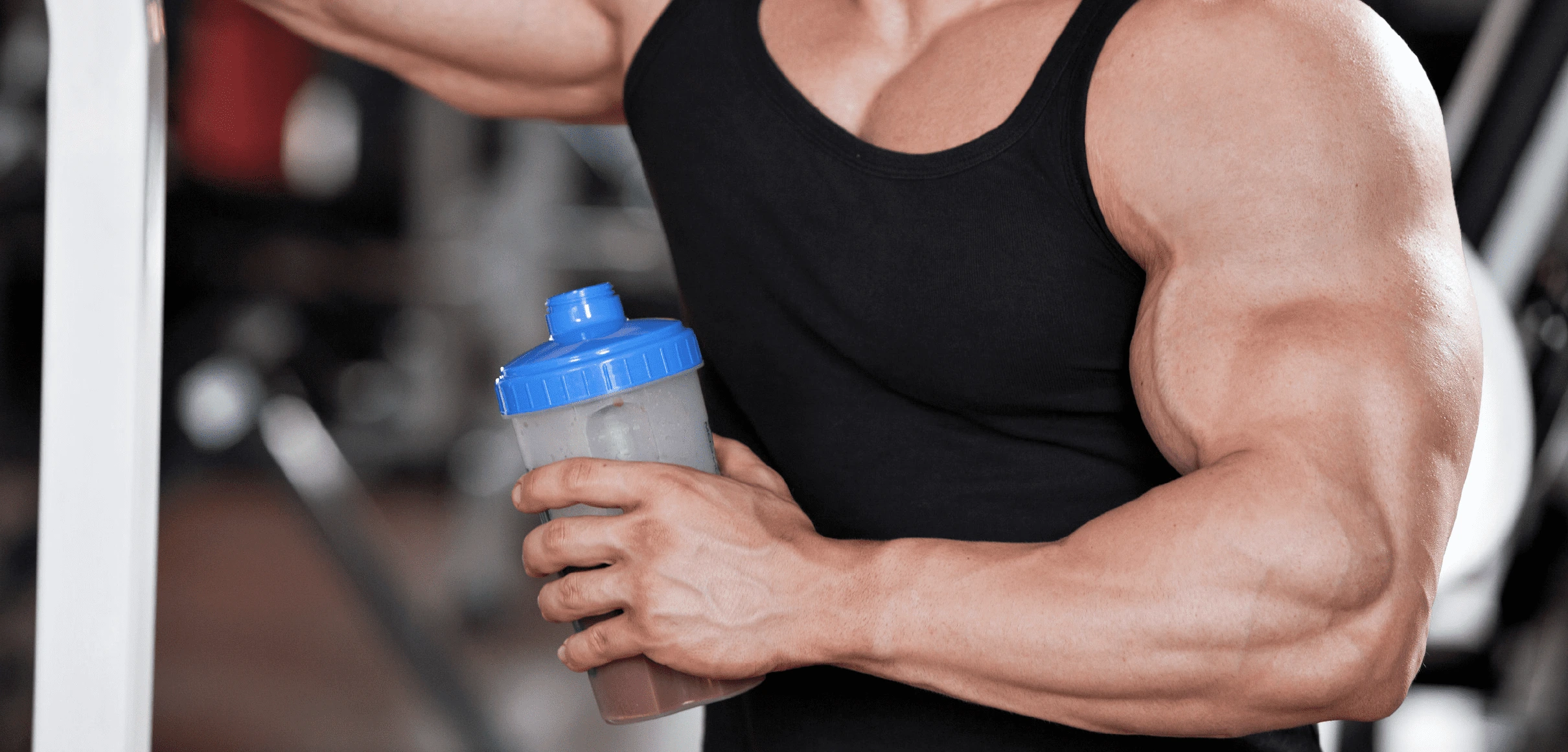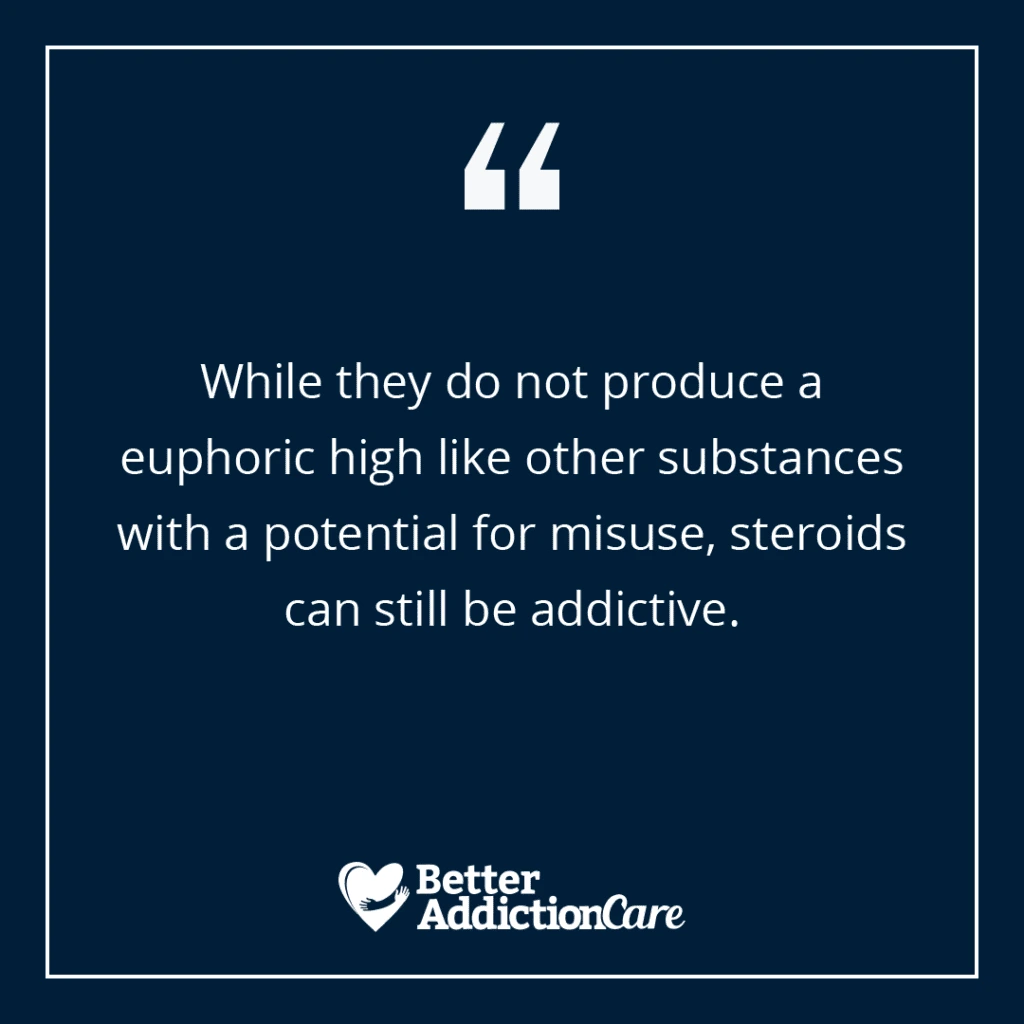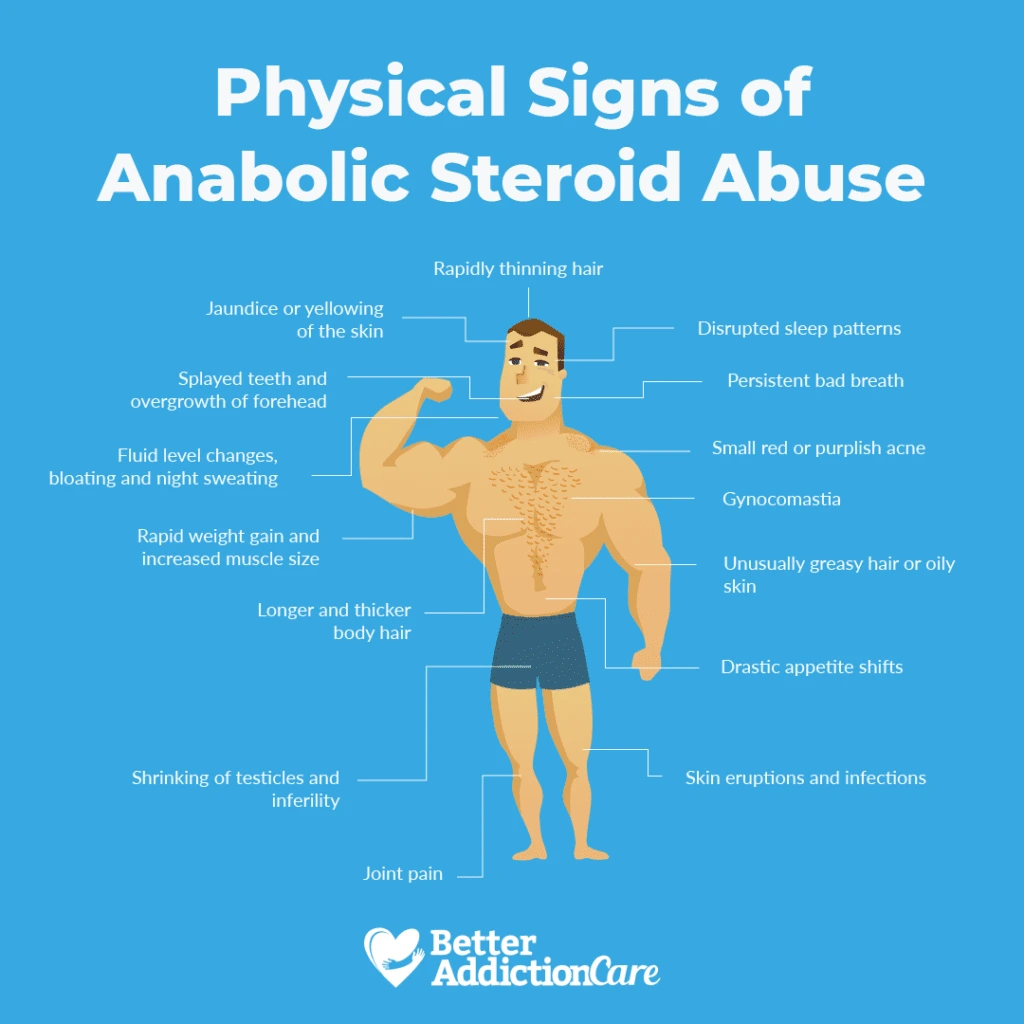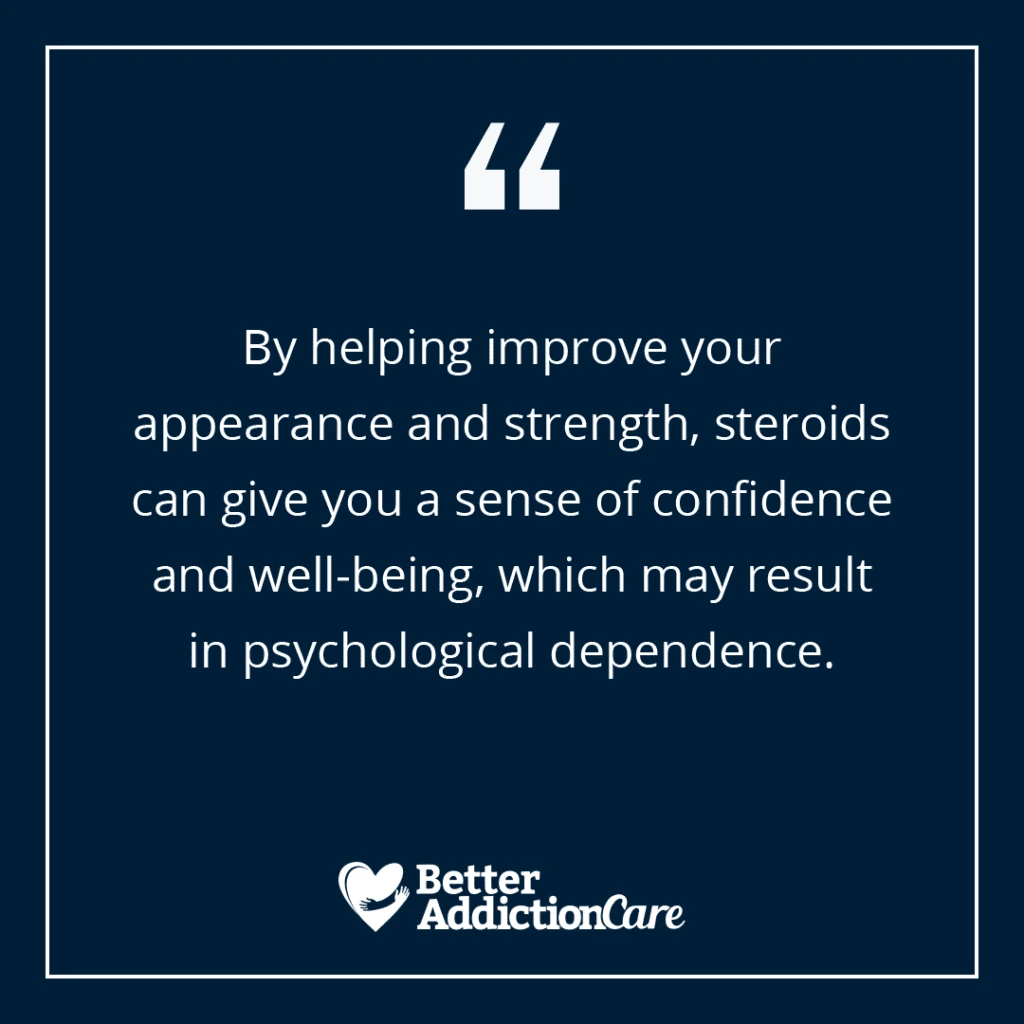Are Steroids Addictive?
Steroids belong to the group of appearance and performance-enhancing drugs (APEDs), a class of substances that help build muscle mass and improve athletic performance. While they do not produce a euphoric high like other substances with a potential for misuse, steroids can still be addictive.

People who use steroids may develop both psychological and physical dependence and experience withdrawal symptoms. Steroid use can also result in severe and potentially fatal side effects. Fortunately, treatment is available, and recovery is possible.

How Addictive are Steroids?
Anabolic-androgenic steroids – or “steroids,” “androgens,” or “anabolic steroids” for short – are the best-studied class of APEDs.They are also the group with the highest potential for misuse and addiction. Frequently misused steroids include:
Oral Steroids
- Restandol (testosterone undecanoate)
- Winstrol (stanozolol)
- Anadrol (oxymetholone)
- Anavar (oxandrolone)
- Dianabol (methandienone )
Injectable Steroids
- Deca-Durabolin (nandrolone decanoate)
- Durabolin (nandrolone phenpropionate)
- Equipoise (boldenone undecylenate)
- Agovirin (testosterone propionate)
- Depo-Testosterone (testosterone cypionate)
- Retandrol (testosterone phenylpropionate)
How Steroids Work
Steroids are synthetic substances that have a similar effect to testosterone, the male sex hormone. They promote the development of male sexual characteristics and muscle growth in both men and women.
While your doctor can prescribe you steroids for legitimate medical purposes, such as to treat disease-related muscle loss, delayed puberty, or low testosterone levels, many people use steroids to boost their looks and athletic performance. This includes both professional and non-professional athletes. In fact, amateur weightlifters have been using more steroids than competitive athletes ever since the 1980s.

How You Can Develop an Addiction to Steroids
Studies show that around 32% of people who abuse anabolic steroids become dependent, and an undetermined percentage may develop an addiction.
Unlike other addictive substances such as heroin, cocaine, and marijuana, steroids do not produce a high or a rush. However, they can still have both direct and indirect effects on your mood. By helping improve your appearance and strength, they can give you a sense of confidence and well-being, which may result in psychological dependence over time.
Animal studies also show that anabolic steroids increase dopamine levels in brain regions responsible for reward pathways. They also boost serotonin levels in areas of the brain that play a role in mood regulation. Prolonged use of steroids has also been shown to result in the dysfunction of reward pathways in rats.
You can also develop a physiological dependence on steroids. Attempts to reduce or stop using can trigger steroid withdrawal symptoms, including:
- Fatigue
- Insomnia
- Restlessness
- Loss of appetite
- Reduced sex drive
- Steroid cravings
- Depression
Depression is the most concerning withdrawal symptom associated with steroid dependence since it may lead to suicidal ideation and attempts.

How Steroid Addiction May Affect Your Health
If you develop a steroid dependence or steroid addiction, you may overlook or underestimate their serious, long-term, and in some cases, irreversible side effects. These may include:
- Strokes
- Liver tumors
- Kidney failure
- Heart disease
- Early heart attacks
- Male breast growth
- Sexual dysfunction
- High blood pressure
- High blood fat levels
- Psychiatric conditions
- Mood swings
- Severe irritability
- Aggressiveness
If you inject steroids and share needles or use non-sterile injecting techniques, you are also at risk for infections, such as HIV and viral hepatitis.
Risk Factors for Steroid Addiction
Non-professional male weightlifters aged 20–30 are the most likely to develop a steroid addiction.
Other risk factors for steroid addiction include:
- Depression
- Substance use
- Eating disorders
- Poor self-esteem
- Muscle dysmorphia
- Past suicide attempts
- Parental concerns about weight
- History of physical or sexual abuse
- Poor knowledge and attitudes about health
- Participation in sports with a focus on body weight and shape
Other factors for developing a substance use disorder generally include:
- Genetic predisposition
- Negative life events
- Child abuse and maltreatment
- Poverty and lack of economic opportunities
- Parents who use drugs or suffer from mental illness
However, it is important to note that risk factors do not decide your life. While they may increase your chance of developing an addiction to steroids or another substance, this does not mean that it will necessarily happen.
Signs and Symptoms of Addiction
The Diagnostic and Statistical Manual of Mental Disorders, Fifth Edition (DSM-5) outlines the official diagnostic criteria for mental and substance use disorders in the U.S. While the DSM-5 has yet to determine the standard for steroid addiction, researchers have adjusted the current criteria for substance addiction and applied them to steroid use disorder.
These include:
- Tolerance, orrequiring ever-increasing amounts of steroids to achieve the desired effect. For instance, you may need higher doses of steroids to maintain the same level of muscle mass.
- Steroid withdrawal, orexperiencing at leasttwo of the following symptoms: fatigue, insomnia or hypersomnia, depressed mood, loss of appetite, or loss of libido.
- Taking larger amounts of steroids or taking them over a longer period of time than you originally planned. For example, you may resume use after a shorter “off” period than you intended, or you may eliminate “off” periods altogether.
- A persistent desire or failed efforts to reduce or stop steroid use. This could be due to experiencing unpleasant steroid withdrawal symptoms or because of anxiety about losing muscle mass.
- Spending a lot of time obtaining or using steroids. This may also include weight training, attending to your diet, and spending time with other people who use steroids.
- Giving up work-related, social, or recreational activities. For instance, you may skip activities that could cause you to miss workouts, interfere with your dietary regimen, or prevent you from using steroids.
- Continued steroid use despite experiencing side effects. These could include both physical and psychological problems.
If you experience three or more of these symptoms at any time in the same year, you have a steroid addiction and may want to seek a treatment program that can help you quit.
What is the Difference Between Dependence and Addiction?
Physiological dependence is a normal bodily reaction to the chronic use of substances, including many prescription drugs that you may take as directed by your doctor. Over time, the body adapts to the substance and needs it to function optimally. This may then result in withdrawal symptoms if you stop using the substance.
In the case of steroids, if you are misusing steroids without a valid medical reason, you will likely develop a dependence faster than someone who is taking it medically. That physiological dependence will make it difficult to quit since it’s hard to endure the withdrawal symptoms. This may lead to a cycle of quitting and relapse that contributes to a steroid addiction. A steroid addiction, unlike physiological dependence, is a pattern of compulsive drug-seeking and using behaviors, despite harmful consequences.
Find the Best Rehab for Steroid Addiction
If you or someone you care about has a steroid addiction, you may want to consider a rehab program. Modern steroid addiction treatments rely on holistic approaches that target your individual needs, including a combination of psychotherapy, pharmacological treatments, and endocrine therapies.
Depending on the severity of your condition, you may consider:
Inpatient Treatment Options
Inpatient steroid addiction treatment may be beneficial if you have a severe steroid addiction. You will receive intensive, full-time care at an accredited treatment facility. Your inpatient treatment may last anywhere between 30 and 90+ days.
Outpatient Treatment Options
Outpatient steroid addiction treatment may work for you if your addiction is milder. You continue to live at home and only visit the treatment center to receive your therapy as directed by your healthcare provider.
Finding the right treatment program shouldn’t be difficult—that’s why we’re here to help. Give our 24/7 helpline a call at (800) 429-7690 to find a steroid rehab.








